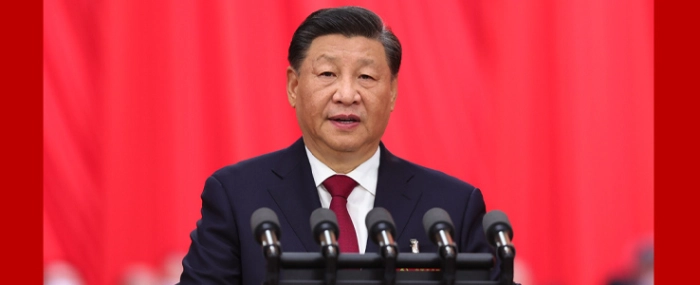
China does not exclude force to resolve “Taiwan issue”
President Xi Jinping, during the opening of a major party meeting, told the crowd that it is up to the Chinese people to resolve disputes with Taiwan – and that the country does not exclude the use of force to do so.
A peaceful reunification is its first choice, however, as a last resort, China says that it reserves the right to use force over Taiwan.
The self-governing island's presidential office released a statement following President Xi Jinping’s speech, in which it said that Taiwan will not cede its independence or compromise on freedom and democracy, according to a Reuters report.
Tensions between China and Taiwan have been rising for some time; however, they considerably rose in August after China held military drills close to Taiwan in response to US speaker of the House, Nancy Pelosi’s visit to the island.
Taiwan is responsible for 63% of the global semiconductor market share, according to data from The European Institute for Asian Studies (EIAS). Almost 75% of the global semiconductor manufacturing capacity is concentrated in East Asia.
China views Taiwan as its own territory and Taiwan’s position on the global semiconductor market has been speculated to be one of the reasons for China’s increased pressure on the island. China’s own domestic semiconductor industry has been on the receiving end of increased sanctions from the US, limiting the possibility to acquire production equipment to bolster the industry.
If China were to seize control of fabs owned by TSMC, UMC, and Micron – the country would significantly boost its semiconductor manufacturing power. A possible response to this could be to evacuate employees and destroy the fabs in the case of an invasion – however, the National Security Bureau of Taiwan says that this might not be required, according to a Bloomberg report.
The companies running the facilities are highly integrated with the global supply chain, so the US and other countries would be able to choke off the production without getting rid of its plants, according to Chen Ming-tong, director-general of Taiwan's National Security Bureau, making it pointless to take over the facilities, the report continues.



